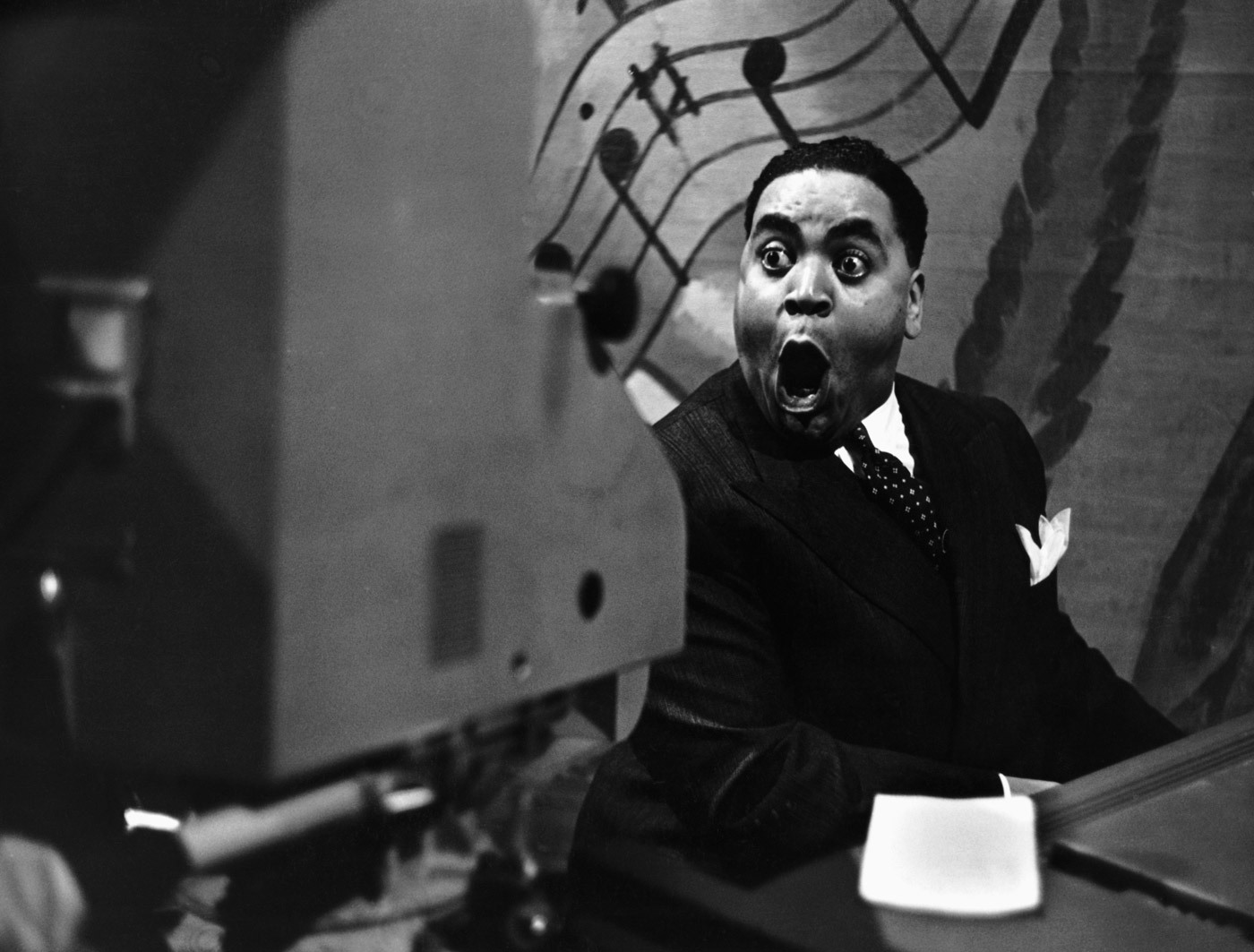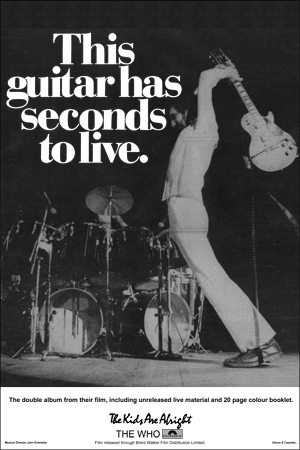Francis Poulenc’s Élégie, played by Alan Civil and Jacques Février:
(This is the latest in a series of arts-related videos that appear in this space each Monday and Wednesday.)
Archives for 2013
TT: Almanac
“‘Tis said that courage is common, but the immense esteem in which it is held proves it to be rare.”
Ralph Waldo Emerson, “Courage”
TT: Lift up your hearts
Periodic loneliness is the hard part of a happy marriage. Mrs. T and I recently spent a week and a half apart, she in Connecticut and I in Wisconsin, and one morning I found myself in the hotel gym, pulling endlessly on the handle of an ancient rowing machine and feeling sorrier for myself with every tug. Then, without warning, my iPod served up Count Basie’s 1938 recording of Every Tub, than which there is nothing more uncomplicatedly festive, and all at once my eyes filled with tears of pure joy.
Not everyone is as susceptible as I am to the mood-altering powers of music, but for those who are, it’s usually possible to cheer yourself up by listening to the right record at the right moment. With that in mind, I took great care for the remainder of my stay to listen only to just such unshadowed, unambivalent records during my twice-daily workouts. No Schubert or saudade, no Donald Fagen or Stephen Sondheim, only the kind of hopeful music that is by its very nature suited to what one of Arnold Bennett’s fictional characters called “the great cause of cheering us all up.”
It occurred to me after returning to New York that you might possibly enjoy listening to some of the records that saw me through my temporary separation from Mrs. T. Here are twenty, listed in no particular order. Most of the links will take you to YouTube versions of the music in question, but two require that you make a small purchase in order to download them. (Believe me, it’s worth it.)
Warning: if none of these records does the job for you, it’s probably not going to get done.
* * *
• Bing Crosby and the Jimmy Dorsey Orchestra, I’m an Old Cowhand
 • Erin McKeown, Air
• Erin McKeown, Air
• John Philip Sousa, The Stars and Stripes Forever, transcribed and performed by Vladimir Horowitz
• The Rolling Stones, Honky Tonk Women
• Edvard Grieg, Wedding Day at Troldhaugen, performed by Percy Grainger
• R.E.M., Radio Free Europe (the original Hib-Tone single version)
 • Fats Waller and His Rhythm, Loungin’ at the Waldorf
• Fats Waller and His Rhythm, Loungin’ at the Waldorf
• Joe Williams and the Count Basie Orchestra, Every Day I Have the Blues
• Jim and Jesse, Air Mail Special
• Benjamin Britten, Young Person’s Guide to the Orchestra, performed by Britten and the London Symphony
• Louis Jordan and His Tympany Five, Don’t Worry ‘Bout That Mule
• No Doubt, Just a Girl
• Richard Wagner’s Overture to Die Meistersinger, performed by Arturo Toscanini and the NBC Symphony
 • The Who, Summertime Blues
• The Who, Summertime Blues
• Horace Silver Quintet, Cookin’ at the Continental
• Sidney Bechet and His New Orleans Feetwarmers, Maple Leaf Rag
• Anton Arensky, Waltz (from Suite for Two Pianos, Op. 15), performed by Harold Bauer and Ossip Gabrilowitsch
• Aaron Copland, El Salon Mexico, performed by Serge Koussevitzky and the Boston Symphony
• Wild Bill Davison, That’s A-Plenty
• The Dominoes, Sixty Minute Man
TT: Lookback
From 2005:
Would we all be happier if we were capable of always enjoying to the fullest whatever we’re doing at the moment we’re doing it? Probably–but then we wouldn’t be quite human, would we? Such contentment is not in our natures: we keep one eye on the horizon, and sometimes both, which leaves neither free to see the moments that pass before us in review, each one crying out, Look at me! Aren’t I pretty?…
Read the whole thing here.
TT: Almanac
“Moviegoers like to believe that those they have made stars are great actors.”
Pauline Kael, “Potency”
TT: Roadside attraction
I drove last Monday from Spring Green, a village in southwest Wisconsin, to Chicago’s O’Hare Airport, from which I flew back to the East Coast and Mrs. T. This wasn’t a great idea–it was Labor Day and highway traffic was brutally slow–but I didn’t have any serious alternative. Fortunately, my trusty GPS decided early on that it would be foolish for me to try to get to O’Hare via I-90, and moments later I found myself in the middle of Janesville, Wisconsin (pop. 63,575). I briefly thought that my GPS had gone mad, especially when I came within two left turns of being stopped dead in my tracks by the local Labor Day parade. I managed to extract myself without incident, however, and a few minutes later I was cruising unharassed down a peaceful country lane.
 Rural Wisconsin, it turns out, looks a lot like the part of southeast Missouri where I grew up. As I made my way through the middle of nowhere, I saw any number of things that I might just have easily seen in and around Smalltown, U.S.A. I laughed out loud when I drove past a giant ear of corn that proclaimed the coming of an annual event known as Darien Cornfest, not because I found it funny but because it felt so familiar. Then I said to myself, I wish I could call Mom and tell her where I am and what I’m doing.
Rural Wisconsin, it turns out, looks a lot like the part of southeast Missouri where I grew up. As I made my way through the middle of nowhere, I saw any number of things that I might just have easily seen in and around Smalltown, U.S.A. I laughed out loud when I drove past a giant ear of corn that proclaimed the coming of an annual event known as Darien Cornfest, not because I found it funny but because it felt so familiar. Then I said to myself, I wish I could call Mom and tell her where I am and what I’m doing.
After my father died in 1998, I took to calling up my mother regularly. Within a year or so I’d fallen into the habit of speaking to her on the phone two or three times a week. It never occurred to me that there was anything unusual about this practice until I told other people about it and found that most grown children don’t call their parents nearly so often. To me it was nothing more than a stopgap: I wasn’t able to visit my mother more than once or twice a year, and my calls made her feel as though I were still a part of her daily life.
All told, I suppose I must have called her a couple of thousand times between 1998 and her death fourteen years later. I confess that I can’t recall more than a half-dozen of those calls with any specificity, since we never talked about anything in particular: I told her what I’d done that day, trying in the process to make her laugh, and she in turn told me about her own day. I liked to call her from the cab when I was en route to Broadway, knowing that it would please her to hear that I would soon be seeing an actor of whom she’d heard. (I do remember how thrilled she was when I told her that I was about to see Hal Holbrook in Mark Twain Tonight!) When the news was good I shared it with her, and when it was bad I kept it from her. My job was to make her happy, and since I couldn’t do it in person anymore, I did it on the phone. It was as simple as that.
 In the last years of her life my mother liked nothing more than to be taken for long country drives on sunny afternoons, and I did so whenever I visited Smalltown, however briefly. That’s what made me think of her as I made my circuitous way from Spring Green to O’Hare on the back roads of Wisconsin and Illinois: I could easily imagine her smiling at the notion of her city-dwelling son getting caught up in a small-town Labor Day parade.
In the last years of her life my mother liked nothing more than to be taken for long country drives on sunny afternoons, and I did so whenever I visited Smalltown, however briefly. That’s what made me think of her as I made my circuitous way from Spring Green to O’Hare on the back roads of Wisconsin and Illinois: I could easily imagine her smiling at the notion of her city-dwelling son getting caught up in a small-town Labor Day parade.
Calling my mother eventually became a sad and painful chore. For a year or so her memory was failing, and even after anti-dementia drugs reversed her mental decline, I dialed her number with undiminished anxiety, wondering what fresh horror awaited me. In time she grew so weak and fragile that she could do nothing more than whisper hello, forcing me to grapple anew each evening with the agonizing task of chattering brightly and pointlessly for a few endless minutes. Yet I always thought as I hung up the phone, A time will come when you’d give anything to be able to do this again.
Sure enough, it has. I wouldn’t want to repeat any part of the last year of my mother’s life–but there isn’t much that I wouldn’t give to be able to call her up and tell her that I just saw a giant ear of corn.
TT: On our way
Mrs. T are en route to Maine today. I’ll be somewhat out of touch until later in the week, but “About Last Night,” as always, will continue uninterrupted.
Till soon.
TT: Just because
A 1984 Cinéma Cinémas interview with Elisha Cook, Jr. The interview segment and clips are in English with French subtitles:
(This is the latest in a series of arts-related videos that appear in this space each Monday and Wednesday.)
